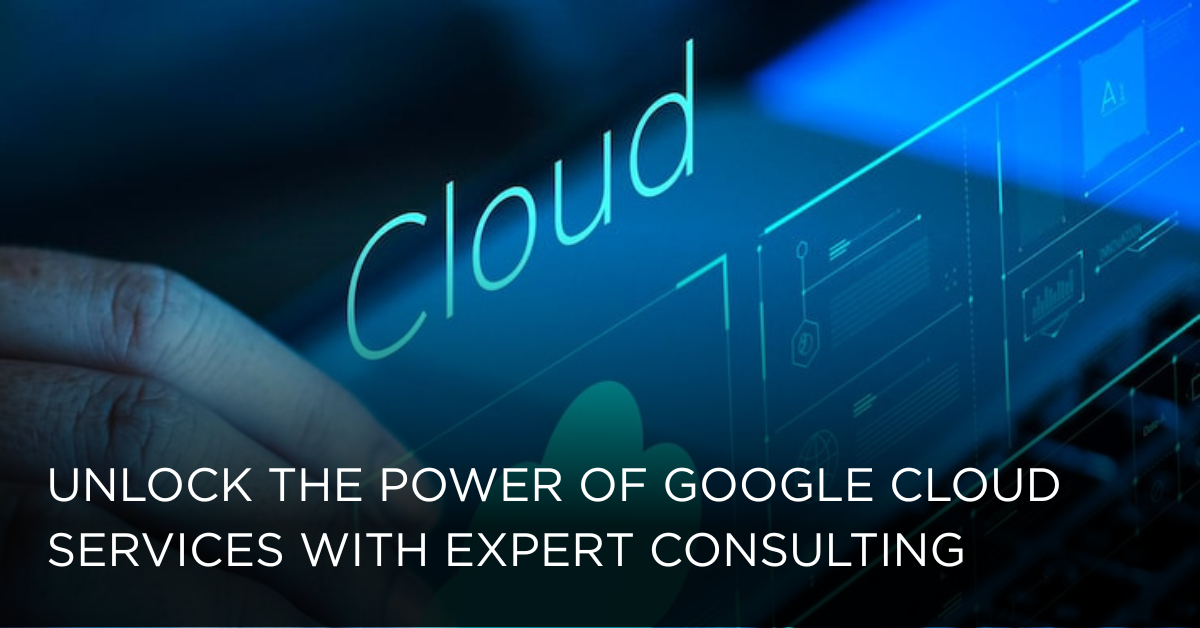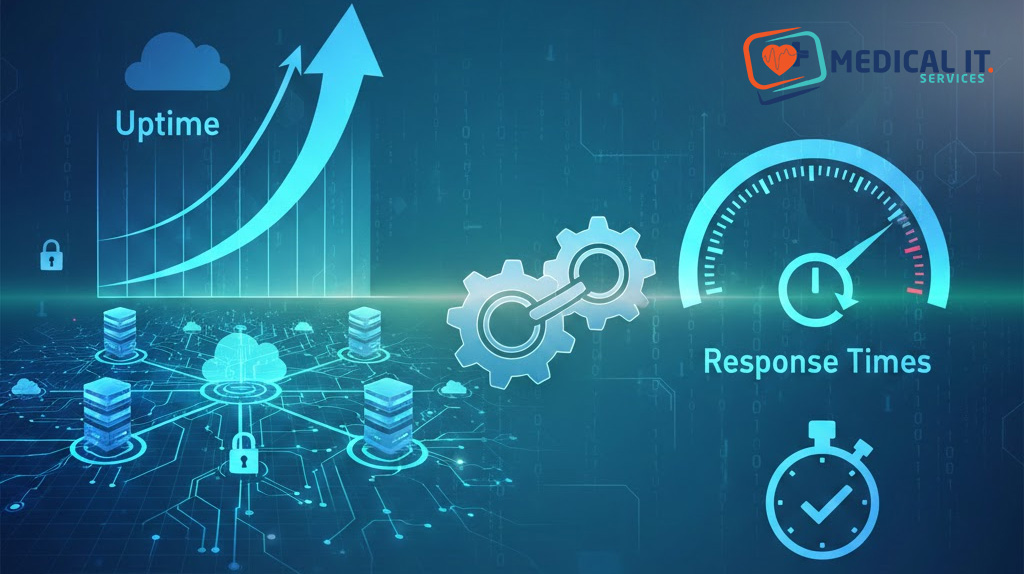What is Internet Management Service? In today’s era, fast and strong internet has become a…

Using Google Cloud Services But Feeling Lost? Why You Need an Expert Partner to Manage Costs and Configuration
You made the strategic decision to migrate to the cloud. After careful consideration, you chose Google Cloud Services. A platform renowned for its powerful data analytics, machine learning capabilities, and scalable infrastructure. The initial setup is complete, your applications are running, and you’ve officially joined the digital vanguard.
But then, a familiar feeling sets in. It’s not the excitement of innovation, but a gnawing sense of being overwhelmed. The console is a labyrinth of services with cryptic names. The first monthly bill arrives, and it’s significantly higher than the initial estimate. A performance issue arises, and your team spends days trying to pinpoint the root cause in a stack of interconnected services.
Why Google Cloud Feels Overwhelming
Google Cloud Platform (GCP) is a masterpiece of engineering, offering over 150 services. While this breadth is its greatest strength, it’s also the primary source of confusion for many businesses.
The Configuration Conundrum
Simply launching a virtual machine (Compute Engine) or a database (Cloud SQL) is just the beginning. Are your networks configured for optimal performance and ironclad security? Is your data encrypted both at rest and in transit? Have you set up the right Identity and Access Management (IAM) policies to follow the principle of least privilege? Misconfigurations here are not just performance bottlenecks; they are the leading cause of security breaches in the cloud.
The Cost Spiral
The pay-as-you-go model is a double-edged sword. Without vigilant oversight, costs can spiral out of control with terrifying speed. This phenomenon, known as “cloud waste,” stems from:
-
Over-Provisioning: Paying for massive virtual machines when your application only needs a fraction of the resources.
-
Zombie Assets: Forgetting to turn off storage disks or instances that are no longer attached to running virtual machines.
-
Unoptimized Storage: Using high-performance storage tiers (like SSD) for archival data that could reside on a much cheaper coldline or archive storage class—one of the key decisions in choosing the best cloud storage for each specific use case.
The Performance Puzzle
Why is the application slow? Is it the database, the network latency, the VM instance type, or the code itself? In an on-premises world, the stack was visible and tangible. In the cloud, it’s a distributed system where interdependencies can create a complex web that is incredibly difficult to untangle without deep, platform-specific expertise.
The Skills Gap
The market for top-tier Google Cloud-certified engineers is incredibly competitive. Recruiting, training, and retaining an in-house team with the breadth of knowledge required to manage everything from infrastructure and security to data analytics is a time-consuming and expensive endeavor.
What Expert Cloud Consulting Services Actually Do
A Cloud Consulting Services partner is not just a vendor; they are an extension of your team. They bring pre-packaged expertise, proven methodologies, and a singular focus: to ensure you get the maximum possible value from your investment in Google Cloud Services.
Let’s break down their role into three critical areas:
Taming the Cost Beast FinOps in Action
A expert partner implements a Financial Operations (FinOps) culture, moving cost management from a reactive accounting task to a proactive strategic function.
-
Comprehensive Cost Visibility: They use tools like Google Cloud’s Billing Reports and third-party platforms to provide a clear, granular view of exactly where every dollar is being spent, right down to the project, service, and even label.
-
Rightsizing Recommendations: Using monitoring data, they analyze your resource utilization and recommend the perfect instance type and size for your workload, eliminating over-provisioning.
-
Commitment Management: They analyze your steady-state usage and advise on purchasing Committed Use Discounts (CUDs), which can save you up to 70% compared to on-demand pricing.
-
Storage Tier Optimization: They audit your data lifecycle and ensure that infrequently accessed data is automatically moved to more cost-effective tiers, a critical step in securing the best cloud storage strategy for your budget.
The result? A typical business can reduce its Google Cloud Services bill by 20-35% or more, often within the first billing cycle, freeing up capital for innovation.
Architecting for Excellence: Security, Performance, and Reliability
Configuration is not a one-time event; it’s an ongoing process of optimization and hardening.
-
Security-First Architecture: Consultants design your environment with security as the foundation. This includes setting up VPCs (Virtual Private Clouds) with strict firewall rules, configuring IAM with least-privilege access, enabling Security Command Center, and ensuring compliance with standards like ISO 27001 or HIPAA.
-
Performance Tuning: They conduct load testing and performance profiling to identify bottlenecks. This could mean optimizing database queries, leveraging CDN (Cloud CDN) for global website hosting, or selecting the right compute option (e.g., Cloud Run for serverless containers vs. GKE for full Kubernetes control).
-
Reliability and Disaster Recovery: They build resilient architectures that can withstand zone or regional failures. This involves designing redundant systems, implementing robust backup strategies, and creating clear disaster recovery runbooks.
A Localized Advantage of Google Cloud Services
For businesses operating in or targeting the Australian market, the “cloud” has a very physical dimension: latency and data sovereignty.
-
Low-Latency for Australian Users: If your primary user base is in Sydney or Melbourne, hosting your application in an Oregon or Iowa data center will introduce noticeable lag. A consultant with local expertise will strategically deploy your resources within the
australia-southeast1(Sydney) oraustralia-southeast2(Melbourne) regions. This is a non-negotiable for a superior user experience, whether you’re running an e-commerce platform, a SaaS application, or any dynamic website hosting in Australia. -
Data Sovereignty Compliance: Australian privacy laws (such as the Privacy Act 1988) and specific industry regulations mandate that certain data must reside within the country’s borders. An expert partner ensures your Google Cloud Services architecture is compliant by design, configuring storage and databases to never leave the Australian regions, thus mitigating legal and reputational risk.
This localized knowledge is what separates generic cloud hosting providers from true strategic partners.
Empowering Your Team and Future-Proofing Your Investment
The goal of a great consultant is not to create dependency, but to build your capability.
-
Knowledge Transfer: They work alongside your team, providing training and documentation. This transforms the cloud from a black box into a manageable tool that your staff can confidently operate.
-
Automation: They automate repetitive tasks like backups, scaling policies, and security checks using Infrastructure as Code (IaC) tools like Terraform. This reduces human error and frees your team to focus on building features, not managing infrastructure.
-
Strategic Roadmapping: They help you look beyond the immediate technical debt and plan for the future. How can you leverage Google’s AI and ML tools? Is your data platform ready for real-time analytics? A consultant helps you build a roadmap to get there.
Choosing the Right Partner in Google Cloud Services
Not all cloud hosting providers or consultancies are created equal. When selecting a partner, look for:
-
Google Cloud Premier Partner Status: This is the highest level of partnership, indicating proven expertise, a significant number of certified experts, and a strong relationship with Google.
-
Proven Case Studies: Ask for examples of businesses similar to yours that they have helped, specifically looking for cost-saving and performance improvement metrics.
-
A Holistic Approach: The best partners offer a blend of strategic advisory, technical implementation, and ongoing managed services. They should be able to discuss everything from high-level architecture to the nitty-gritty of IAM policies.
-
Cultural Fit: They should feel like an extension of your team, communicating clearly and aligning with your business goals.
Conclusion
Leveraging Google Cloud Services is one of the most powerful things a modern business can do. But the platform’s immense potential is often locked behind layers of complexity, unpredictable costs, and strategic uncertainty.
Trying to navigate this alone is a high-risk endeavor that can drain finances, slow down development. And expose you to security threats. By partnering with an expert in Cloud Consulting Services, you transform that feeling of being lost into a position of control and confidence.
You gain a guide who can optimize your spending, harden your security, accelerate your performance, and ensure your infrastructure—whether for a simple website hosting in Australia or a global enterprise application—is built for success. Don’t just use the cloud; master it with the right partner by your side. The journey to a more efficient, secure, and innovative future in the cloud begins with that single, strategic decision.



